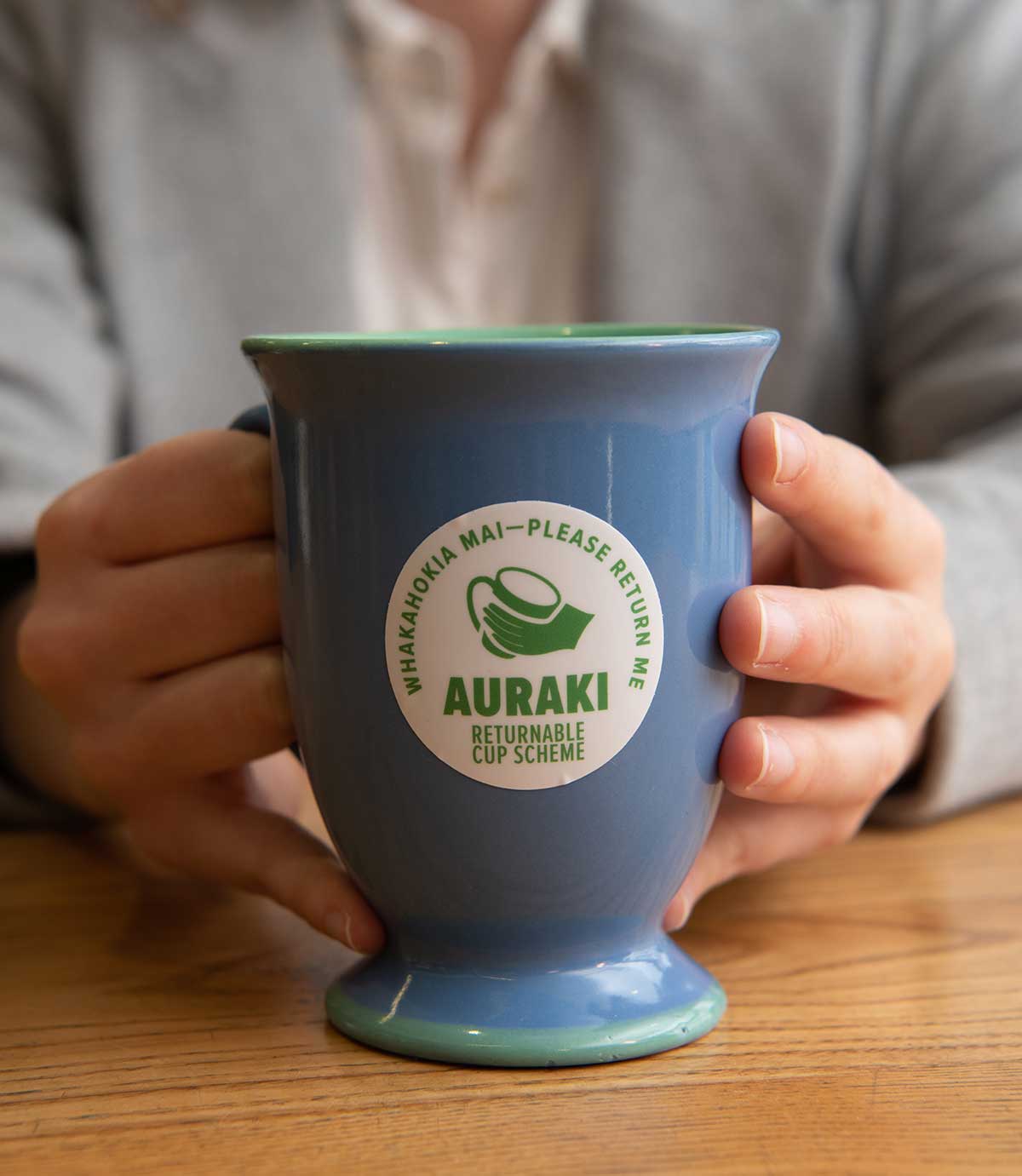“The prompt needs to be right there,” explains Azura. “That encouraged us to put the prompt on the cup.” She spent hours researching eco-friendly options for durable stickers.
They also focused on keeping messages clear and simple and framed in a positive way—‘remember’ to return your cup, rather than ‘don’t forget’.
The students presented their work at the end of 2019 and it has been further developed by the Sustainability Office. Although he thought Boomerang was a good name, Sustainability Director Andrew Wilks says they wanted to use te reo Māori. He turned to the Office of the Deputy Vice- Chancellor (Māori), who came up with ‘auraki’, which has the double meaning of ‘to return’ and ‘to urge’. The stickers now on the cups are bilingual and include the phrase ‘whakahokia mai’ or ‘please return me’. Containers with the same signage are displayed prominently in campus cafés.
“It’s amazing to think our work has led to the roll-out of a new scheme,” says Cassidy.
The students are full of praise for the course, saying they learned a lot along the way about the complexities of behaviour change and how to approach social marketing. They also became adept at group work.
“The skills of working in a group can apply to pretty much anything—to future jobs or other things you might want to get involved in,” says Azura.






